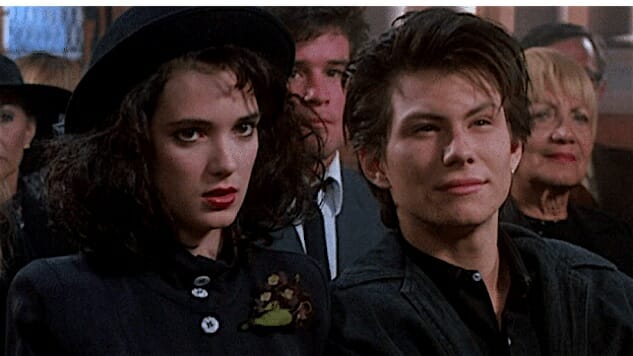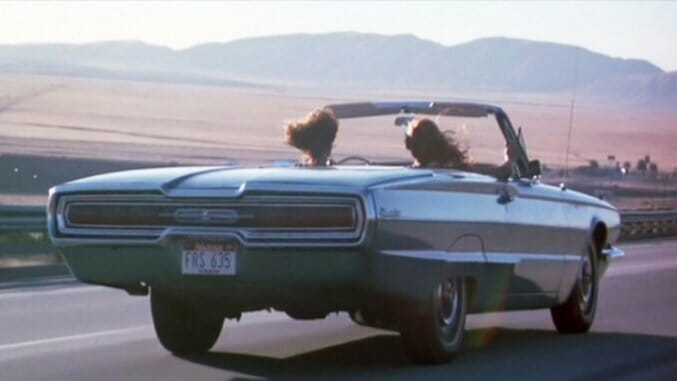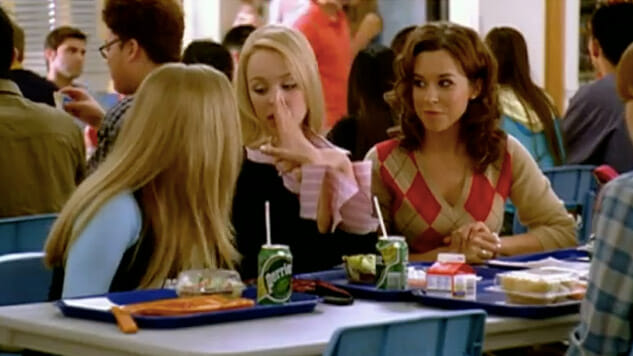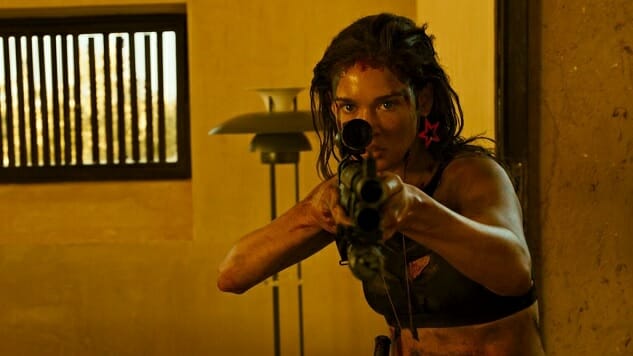10 of the Best Female Revenge Films

Seeking revenge in real life may be laden with heavy consequences, but cinema can offer us a space to explore revenge in all its ugly glory. Nothing feels quite as satisfying as living vicariously through a character on screen and watching them act on the taboo fantasies you could never bring yourself to do. From light-hearted satirical comedies to intense psychological thrillers, revenge has been depicted on screen in various different forms and the female revenge film in particular has undergone many transformations over the years. This week marks 10 years since David Fincher’s Gone Girl was released in cinemas, a film that many have contributed to the ushering in of a new era of revenge thrillers referred to as the ‘Good For Her’ subgenre. This new iteration of the genre sees female protagonists harnessing their rage rather than repressing it, and ultimately finding closure through seeking revenge on those who have wronged them. From the revenge comedies of the 80’s to the rape-revenge thrillers of the 2010s, here are 10 of the best female revenge films to date, crossing multiple genres.
Carrie (1976)
Director: Brian De Palma

We couldn’t put together a list of female revenge films without mentioning the mother of all female revenge films. Based on the Stephen King novel of the same name, Carrie follows teenage outcast Carrie White (Sissy Spacek), a shy schoolgirl with telekinetic powers who is the constant target of bullies. Pushed to the edge after being publicly humiliated at her high school prom, Carrie enacts bloody, fiery revenge on all those who ever humiliated her. Arguably one of the most well-known female revenge films ever to be made, Carrie remains a pop culture staple to this day. The iconic image of the titular character clutching a bouquet of flowers dressed as prom queen most recently inspired the artwork for a prom-themed event organized by Gen Z popstar Olivia Rodrigo, highlighting the staying power of this film. Though somewhat muddy in its sexual and gender politics, there is still joy to be found in watching a bullied young girl seek vengeance on those who have for so long basked in her misery.
9 to 5 (1980)
Director: Colin Higgins

In this Colin Higgins-directed comedy, three women decide they’ve had enough of their sexist boss so they hatch a plan to kidnap him and run his business themselves. Not only did this film birth one of the most well-known Dolly Parton songs in existence, but it remains, rather depressingly, as pertinent as it did upon release 44 years ago. Perhaps the most light-hearted entry in this lineup, this film tackles sexist male egos and highlights the power of being a working woman at a time when the phrase “working woman” was still commonly used. There’s power in seeing three women band together to take down their ego-maniacal, bigoted boss while building a strong friendship together. Though it may contain less blood and guts than the other entries in this list, 9 to 5 is a hilarious feminist revenge film.
Heathers (1988)
Director: Michael Lehmann

Before Daria Morgendorffer, there was Veronica Sawyer, the misanthropic protagonist of Heathers. After years of being trapped in a stuffy clique of preppy schoolgirls all named Heather, Veronica (Winona Ryder) decides to disrupt the status quo with a few seemingly harmless pranks. But when these pranks turn fatal at the hands of nihilistic but alluring delinquent J.D. (Christian Slater), Veronica finds herself an unwilling accessory to his increasingly erratic crimes. By the end of the film, Veronica achieves her mission of throwing the suburban idyll of her town into complete disarray and finds a friend in a bullied schoolmate after the dust has settled. Heathers provides the antidote for the suffocating utopia of suburban life and tests the limits of vengeance as a means of enlightenment, ultimately finding catharsis in eschewing social power in favor of genuine human connection.
Thelma & Louise (1991)
Director: Ridley Scott

When Louise (Susan Sarandon) kills a man who tried to rape her best friend Thelma (Geena Davis), their relaxing road trip turns into an getaway mission as they both become fugitives of the law. Both Sarandon and Davis were nominated for Best Actress at the Oscars for their performances in this film, and for good reason. Davis plays the consummate meek housewife as Thelma and Sarandon’s abrasive, independent waitress Louise is a fantastic contrast. The two personalities complement each other well, and the image of them holding hands as they drive off the Grand Canyon to escape the FBI captures the love shared between the two. As Thelma concludes in the film’s final moments, when it comes to protecting the women you love from predatory men and a justice system that is most certainly not designed to protect you, it might just be better to keep going.
Kill Bill Vols 1 & 2 (2003)
Director: Quentin Tarantino

An assassin known as The Bride (Uma Thurman) wakes after a four year coma and swears revenge on a group of professional assassins and their leader Bill (David Carradine) for trying to kill her and her unborn child. Inspired by martial arts movies and the exploitation films of the 1970s, Kill Bill is Quentin Tarantino’s take on the female revenge flick, and in typical Tarantino fashion, the film is predictably gory. The Bride’s kills each seem to get more vicious as she gets closer and closer to Bill himself, going from a simple knife to the chest to the theatrical violence of decapitation in no time. Kill Bill depicts one woman’s mission to exact revenge on those who have physically and emotionally scarred her, and in that regard, it makes for an entertaining watch.
Monster (2003)
Director: Patty Jenkins

Monster is based on the real-life story of serial killer Aileen Wuornos (Charlize Theron), a sex worker who killed seven of her male clients between 1989 and 1990 and was executed for doing so in 2002. After being brutally attacked by one of her clients, Wuornos kills him in self-defense before deciding to quit prostitution for her own safety. But, with a lack of formal education and work experience, Wuornos is left with no choice but to return to prostitution despite her fears that every male client will try to kill her. She deals with this paranoia by robbing and killing her clients before they can harm her, increasing her brutality with each new kill. Though it would be easy to villainize her for her crimes, the film holds sympathy for Wuornos, presenting her as a woman wronged and left with no other option than to fight for survival. In many ways, Wuornos represents a corner of society that has been cast aside and left to fend for themselves. As a result, the revenge she seeks on the men who want to exploit her feels cathartic, even if she is justifiably punished for her actions.
Mean Girls (2004)
Director: Mark Waters

There’s a reason Mean Girls remains one of the most quoted teen films of all time, even 20 years after its debut. Written by SNL icon Tina Fey, the film follows Cady Heron (Lindsay Lohan) and her misfit friends as they scheme to overthrow the envied Regina George (Rachel McAdams), leader of a popular clique known as “the Plastics.” This year’s film adaptation of the Broadway musical version of the film is proof that when you have a script that is as robust as Fey’s, one that is full of razor-sharp one-liners and immediately identifiable characters, it will stand the test of time. But it is the dedication to depicting the unfiltered nastiness of high school that makes the original film stand out in comparison to its later adaptations. The insults that are thrown around by the teenagers in this film feel like the kind of cold-hearted words you’d hear in an actual school corridor, which makes the plot for revenge even more satisfying. Where the musical and its later film adaptation take a slightly safer approach to those hellish teenage years, Mean Girls revels in the ugliness of petty high school revenge.
Revenge (2017)
Director: Coralie Fargeat

American socialite Jen (Matilda Lutz) believes that French millionaire Richard (Kevin Janssens) is her ticket to success. But when she finds herself trapped in his vacation home in the desert with two of Richard’s friends—one of whom rapes her, the other who sees this happen and does nothing to prevent it—she realizes that escape is her only route to survival. After being pushed off a cliff and left for dead, Jen seeks vengeance on the three men. When it comes to depicting the chilling nature of predatory men, Revenge doesn’t hold back, and where other rape-revenge films fall short on their promise of visceral revenge, this film follows through. The cold detachment with which Richard decides to murder Jen after she refuses to accept hush money is disturbing, but entirely believable. When the time comes for Jen to exact her revenge on each of the men, she doesn’t leave their fate up to the authorities but rather takes matters into her own hands, and we are gifted with the explicit depiction of their suffering. In Revenge, director Coralie Fargeat offers audiences the opportunity to bask in the sight of powerful, predatory men being taken down.
Do Revenge (2022)
Director: Jennifer Kaytin Robinson

When a private video of it-girl Drea (Camila Mendes) is leaked to her entire school by an ex-boyfriend, she is outcast from her usual social circles. In retaliation, she swears revenge on those that have wronged her and befriends fellow outcast Eleanor (Maya Hawke), who is exiled after someone spreads a rumor that she tried to hold down a girl and kiss her. The two social pariahs bond over their shared exile and hatch a plan to enact revenge on those who have humiliated them. The film takes aim at faux-feminist men (and their female counterparts) and revels in the hormonal rage of teenage girlhood while satirizing the Internet generation’s penchant for therapy-speak. In a hallucinogenic palette of pastels and glitter, Do Revenge is an absurd revenge comedy tailor-made for a generation obsessed with topical buzzwords and deconstructing ideas of toxic masculinity.
Blink Twice (2024)
Director: Zoë Kravitz

When cocktail waitress Frida (Naomi Ackie) is invited to tech billionaire Slater King’s (Channing Tatum) private island, her eyes twinkle with the promise of a luxury vacation. But when strange events start occurring, Frida’s bubble of hedonistic bliss bursts, leaving her to reckon with the horrific reality of the world she has entered. As Zoë Kravitz’s first venture into directing, Blink Twice is as ambitious as it is jarring. Kravitz’s film follows in the footsteps of recent social satires like Halina Reijn’s Bodies Bodies Bodies to critique modern society, but where Bodies felt more light-hearted in its approach to a younger generation prone to paranoia, Blink Twice takes aim at a patriarchal order that serves and protects powerful men. Though the film’s controversial ending may leave some viewers feeling unsettled, this twisty debut is on the whole a rather satisfying revenge thriller.







































